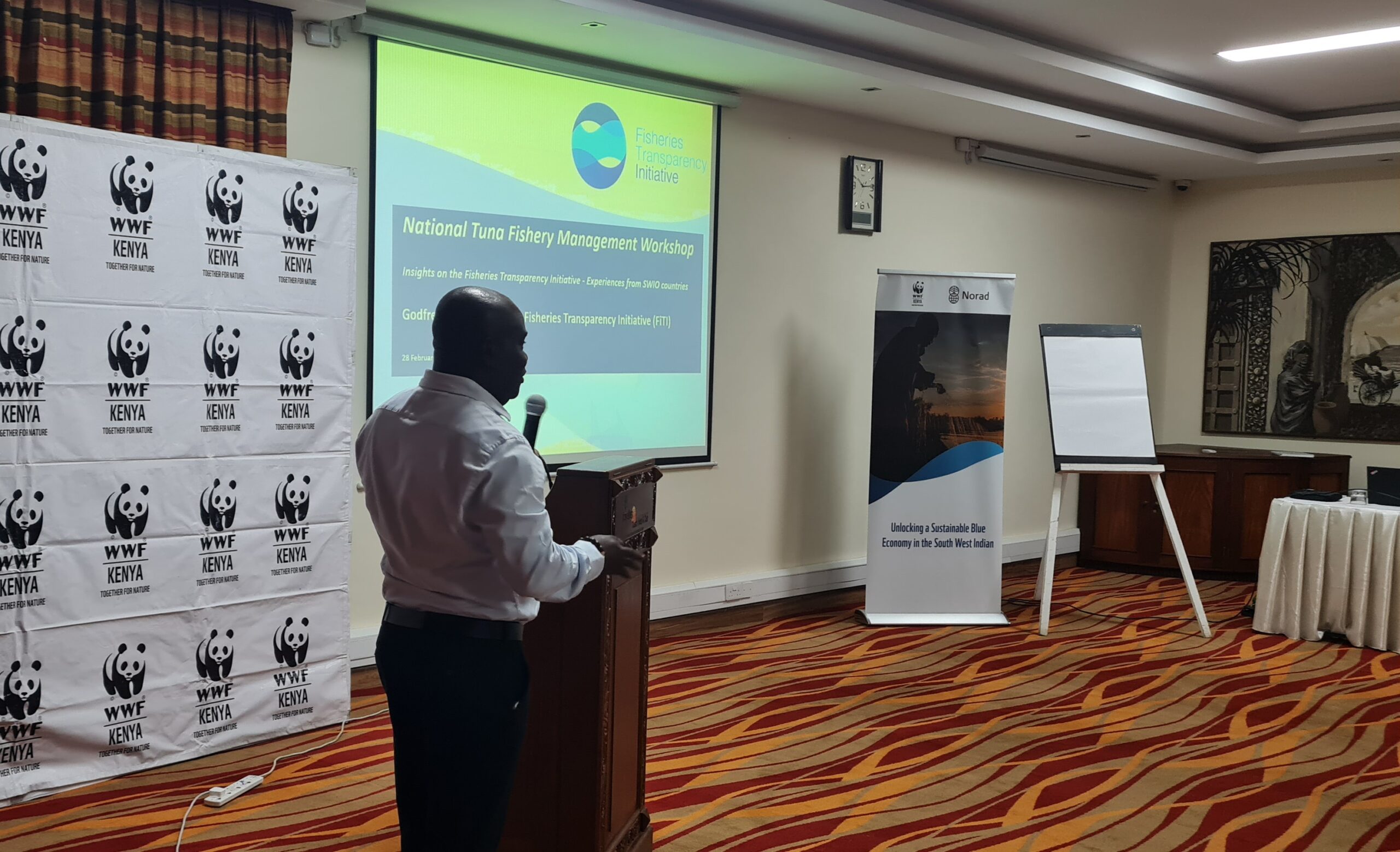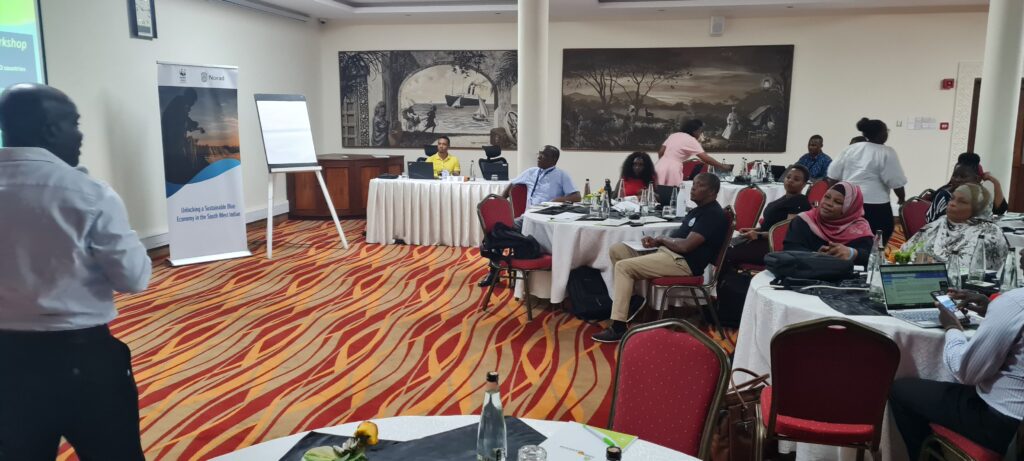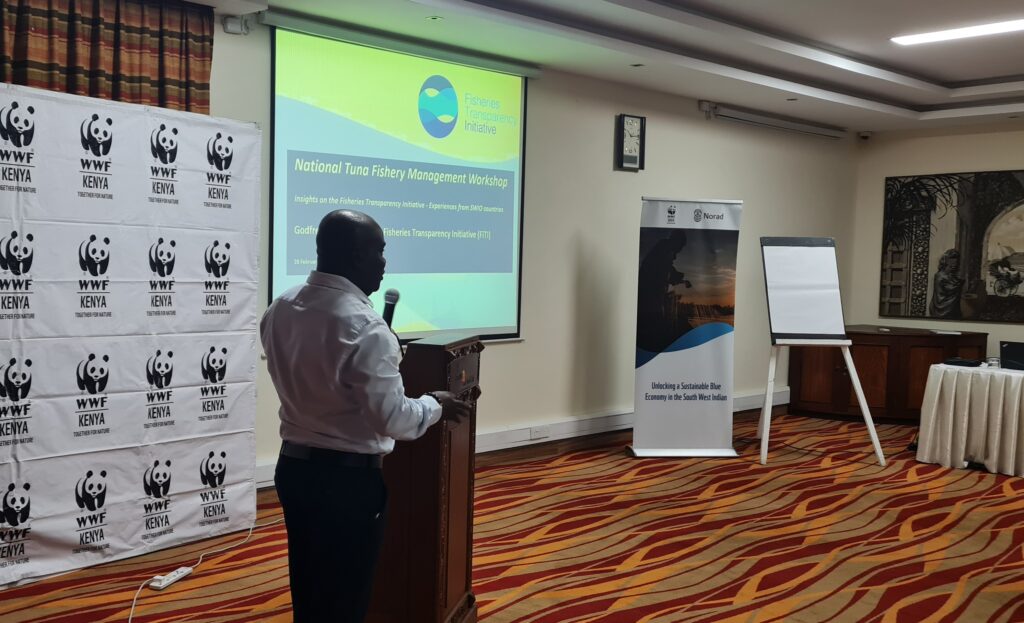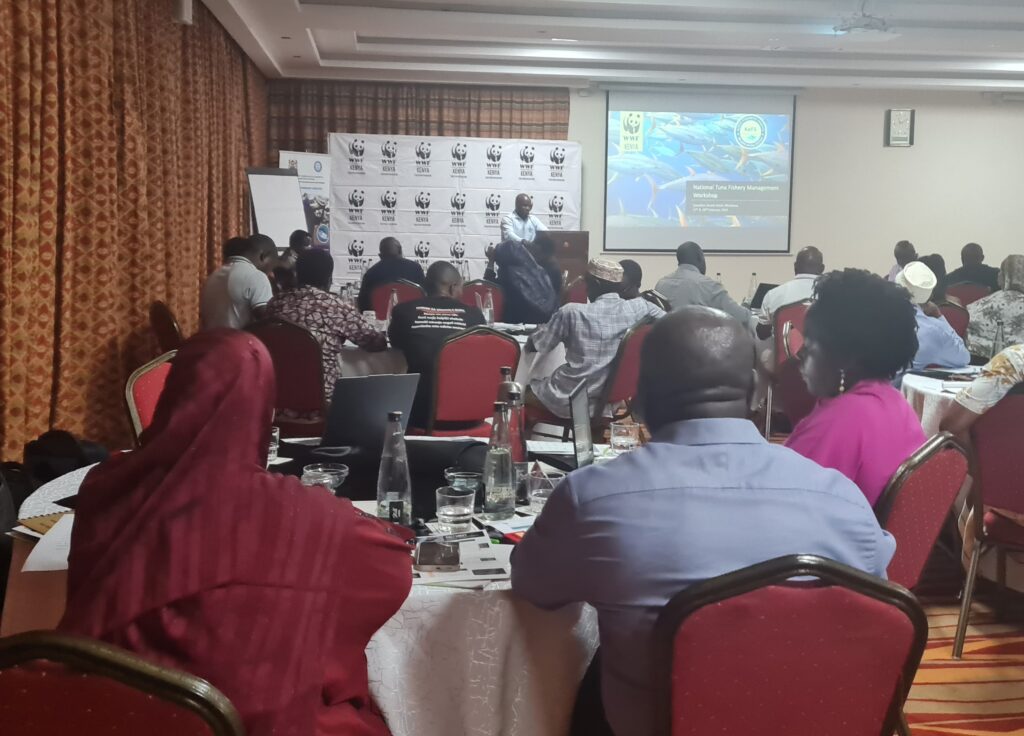FiTI promotes transparency, collaboration at Kenya National Tuna Fishery workshop

Mombasa, 27-28 February 2024. The FiTI International Secretariat recently participated in a series of meetings with stakeholders in Kenya to discuss the development of transparent and sustainable tuna fishery management in the country. During the visit, FiTI collaborated with several stakeholders and explored options to promote fisheries management transparency initiatives in Kenya.
Currently, Kenya’s tuna fishery is underexploited and there is potential for the sector to contribute greatly to the country’s Gross Domestic Product (GDP) and general development. However, the decision-making process for this fishery needs transparency and multi-stakeholder participation to increase harvest in a sustainable way. To understand what that might look like in Kenya, government, industry, fishers, and civil society members came together at the National Tuna Fishery Management Workshop in Mombasa to explore and promote opportunities for improving transparency in tuna fisheries management.
During the workshop, representatives from the State Department of Blue Economy and Fisheries described how they are developing a Tuna Fisheries Management Plan and announced that transparency measures would be featured prominently. The Kenya Fisheries Service was also petitioned to improve the accurate and timely collection of fisheries data, while also making the information easy-to-read and readily accessible to the public.
Workshop attendees also discussed how best to identify potential markets for the tuna fishery, and recognized the importance of transparency while the country develops this industry. To achieve this, it was suggested that the government should allocate resources towards the implementation of fisheries transparency.
Attendees acknowledged that current behaviours need to change, and that the government must develop legal backing for transparency so stakeholders can demand accountability. To achieve this, fishers and civil society organizations requested capacity-building support to effectively advocate for fisheries transparency, improve accountability, and maintain strong participation in the decision-making process.
The FiTI International Secretariat presented on the FiTI Standard and the benefits of joining the initiative, including how FiTI supports countries to make information publicly available through collective action and multi-stakeholder engagement. Attendees had the opportunity to better understand transparency by exploring FiTI’s impact in countries like the Seychelles. The South West Indian Ocean Tuna Forum (SWIOTUNA) reported on the results of a rapid assessment of the state of fisheries transparency in Kenya, finding overly favourable survey answers from the government, and emphasised the need for a more thorough assessment.
After the workshop in Mombasa, FiTI continued with engagements in Nairobi to meet with representatives from Conservation International’s (CI) Blue Oceans Programme and discuss opportunities for collaboration on fisheries transparency in Kenya, including examples of current work in Liberia and the west coast of Africa. While there, FiTI also met with the Western Indian Ocean Governance Institute, which resulted in the decision to form a Multi-Stakeholder Group on fisheries transparency in Kenya.
It was clear from the workshop that stakeholders in Kenya’s tuna fishery recognize the benefits of transparent fisheries management. The recommendations developed at this workshop are crucial for creating a sustainable tuna fishery and represent a new opportunity to improve multi-stakeholder collaboration and information transparency in Kenya’s marine fisheries.
This mission was part of the activities of the FiTI Regional Coordinator for Anglophone Africa and was supported by the German Ministry for Economic Cooperation and Development (BMZ).


